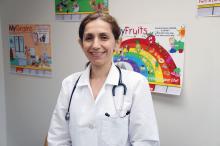It has occurred to me that our focus as physicians has largely been limited to what the victims can do to not become victims.
As pediatricians, we counsel parents on how to keep their children safe, and how to protect them. It is our obligation to help, to guide, and to teach parents. We teach parents about discipline, limit setting, sleeping, feeding, and so many other things. We need to teach them how to talk to their boys and girls about appropriate behavior with whomever they may be interested in, about sexual harassment, and assault, and how not to become part of the problem.
It is our turn to do more, and we need to start right now. We must help our boys and girls understand that not only does no mean no, but only yes means yes, that nothing should happen without verbal consent, that if you cannot get verbal consent then the answer is no, that sex under the influence is not okay, and so much more. These are important conversations to have. Pediatricians should be trained how to best have such conversations, and it should become part of standard of care. We must develop best practices that would include talking to the young men (or women) in our exam rooms with information and advice that would prevent them from crossing the lines in the first place.It is our obligation as pediatricians to teach the children we see growing up in front of us how to behave in an adult, sexual world. We can make a bigger difference than we might think. As physicians, we promised to do no harm when we took our oath. It is now our turn also to take proactive steps to stop the harm caused by others.
Dr. Rimawi is a pediatrician in private practice in Atherton, Calif. Email her at pdnews@mdedge.com.

